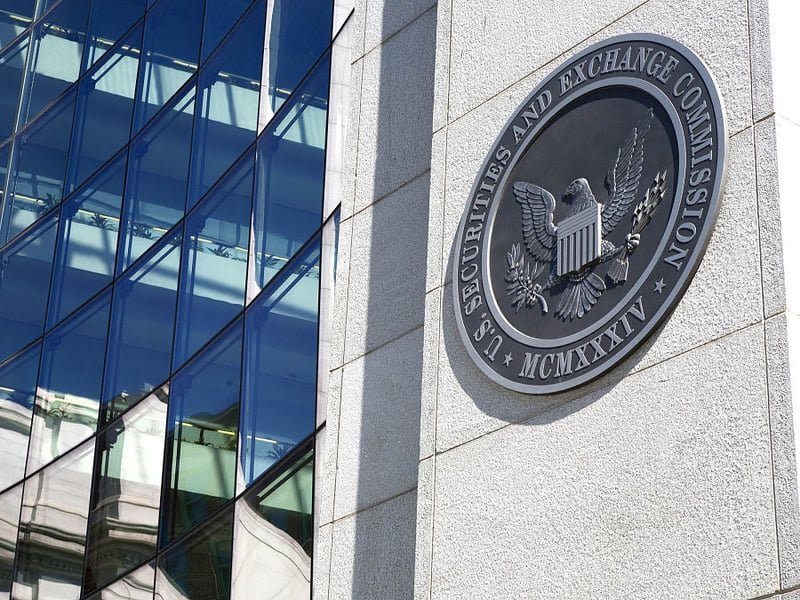

There’s one place in Washington where Democrats are absolutely guaranteed to maintain their majority on election night — the SEC.
Republican lawmakers are eagerly anticipating taking over the House, an almost sure bet, and there’s an increasing chance they’ll prevail in the Senate. Democrats currently hold narrow margins in both chambers.
But on the north side of Capitol Hill at the Securities and Exchange Commission's headquarters, the 3-2 Democratic majority will remain intact. That gives SEC Chairman Gary Gensler latitude to continue pursuing an agenda that Republicans and many financial industry trade associations have called too broad and aggressive.
Democratic control of the SEC will hold until the end of the Biden administration because the majority at the commission reflects the party in the White House. Gensler can proceed with his rulemaking priorities despite what will likely be enormous rhetorical pressure from congressional Republicans during hearings that they'll lead if they’re in the majority.
“Congressional committees can bring him up and browbeat him all they want,” Brian Gardner, chief Washington policy strategist at Stifel Financial, told reporters Thursday. “But if Gensler is able to keep the two other Democratic commission members in line, and I suspect he would, then I don’t see a big shift in SEC policy going forward until the 2024 election.”
Republicans are unlikely to push Gensler off course, said Jamie McGinnis, counsel at Ropes & Gray.
“The influence will be on the margins,” said McGinnis, who was the lead securities counsel for Republicans on the House Financial Services Committee until last April.
Republicans on the financial committee demonstrated again this week that they intend to put heat on Gensler. Reps. Patrick McHenry, R-N.C. and the panel’s ranking Republican, and Bill Huizenga, R-Mich. and chair of the capital markets subcommittee, called on the committee chair, Rep. Maxine Waters, D-Calif., to hold a hearing with Gensler next month.
McHenry and Huizenga said it’s been more than a year since Gensler appeared before the committee. Gensler testified in front of the Senate Banking Committee in September.
House Republicans want to question Gensler on several issues, including a technical glitch that prevented some comment letters from being posted on the agency’s website and a report from the SEC inspector general that said the SEC staff is being overwhelmed by rulemaking activities.
“The recently announced technical errors and workforce issues at the SEC, on top of the rushed, sweeping rulemakings, insufficient comment periods, and regulation by enforcement in the digital asset space necessitate the Committee’s attention now more than ever,” McHenry and Huizenga wrote in an Oct. 25 letter.
McHenry is likely to chair the committee in a Republican House and will be able to haul Gensler up to Capitol Hill whenever he wants.
In addition to grilling Gensler in hearings, Republicans also are likely to try to withhold funding from the SEC for implementing rules, such as those proposed for environmental, social and governance investing. But those so-called riders on appropriations bills often fall by the wayside during budget negotiations with the White House.
What could have some effect on the SEC agenda would be new legislation passed by Congress, for instance, if lawmakers could agree on a bill that would ease rules around how companies can raise capital and how investors can participate in private markets.
There’s some chance of bipartisan agreement on a capital formation measure despite what will be difficult political terrain in Congress no matter who is in charge.
If a capital formation bill is approved by Congress and signed by President Biden, “those rulemakings will be forced on to the [SEC] agenda, and lower-priority rules would be pushed further down,” McGinnis said.
Even that shift would only be a small one. The bigger influence on the SEC agenda would come from potential litigation against the agency’s proposals based on a recent Supreme Court decision that requires agencies to have explicit congressional authority to pursue major regulatory changes.
“That is something that likely will affect the underlying substance of a number of rulemakings,” McGinnis said.

Most firms place a limit on advisors’ sales of alternative investments to clients in the neighborhood of 10% a customer’s net worth.

Those jumping ship include women advisors and breakaways.

Firms in New York and Arizona are the latest additions to the mega-RIA.

The agent, Todd Bernstein, 67, has been charged with four counts of insurance fraud linked to allegedly switching clients from one set of annuities to another.

“While harm certainly occurred, it was not the cataclysmic harm that can justify a nearly half billion-dollar award to the State,” Justice Peter Moulton wrote, while Trump will face limits in his ability to do business in New York.
Orion's Tom Wilson on delivering coordinated, high-touch service in a world where returns alone no longer set you apart.
Barely a decade old, registered index-linked annuities have quickly surged in popularity, thanks to their unique blend of protection and growth potential—an appealing option for investors looking to chart a steadier course through today's choppy market waters, says Myles Lambert, Brighthouse Financial.
